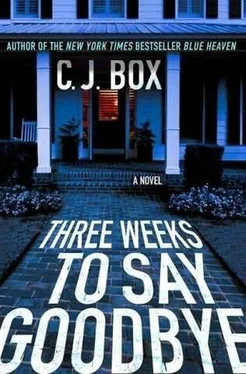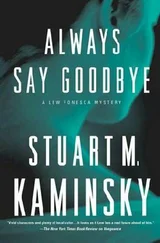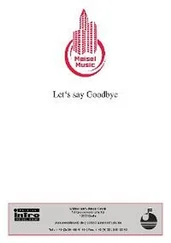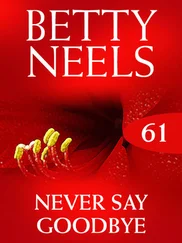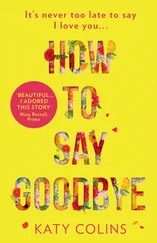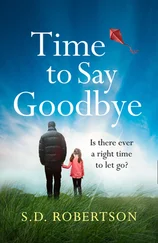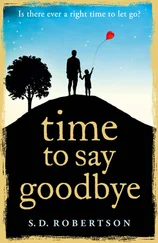“Go on.”
“Sureñ o 13. I printed out all the info on them I could find in our files. Sureños is a Spanish word for Southerner…”
Cody held up his hand. “You don’t need to go into all of that if it’s in the file. I know all about Sur-13, from the fact that it was born in the California prison system and has now spread into all fifty states, that the thirteen refers to the thirteenth letter of the alphabet-M-which stands for Mexican Mafia. The gang identifies with the color blue, members have three tattooed dots on their knuckles, and as an organized crime gang they handle most of the meth and heroin in Colorado.”
Torkleson nodded.
“What we’re interested in is how a good Cherry Creek High School boy got mixed up with them, and why,” Cody said.
“That I can’t tell you,” Torkleson said, tapping the file on the table. “What we do have are a half dozen photos of him- Garrett-with known members of Sur-13 going in and out of the Appaloosa Club down on Zuni Street. You know about the Appaloosa?”
Cody nodded. Even I had heard of the Appaloosa Club. The reason I knew about it was because it was on a block downtown the bureau made sure we steered journalists and other guests away from. Somehow, the area had been missed by the urban developers and probably would be in the near future. The buildings on it were dilapidated. Tattoo parlors, bars, and a couple of liquor stores with bars on the windows. In the middle of all of them was the Appaloosa, easily identified at night because the patrons had smashed most of the ancient red neon tubes above the door so it read POO. I’d heard from Cody that patrolling cops often took a detour around the club so as not to have bricks rained on their cruisers.
“There are some undercover shots of your boy inside the club, too. He looks like he belongs-he doesn’t stand out like some of the adventurous white girls who show up there every now and then looking for trouble. But if Garrett is welcome and comfortable in the Appaloosa, we know he’s in deep with these guys.”
“That’s it?” Cody said. “A few pictures?”
“I’m afraid so.”
Cody sighed. I expected him to upbraid Torkleson, but he didn’t. The new detective seemed to have gathered all he could within the department even though it gave us little we didn’t already know.
“I wish I had more,” Torkleson said, reading Cody’s body language. “Juvie stuff is hard to get without a warrant, even though I have a few buddies downtown. My impression is there was really nothing to get-that Garrett has kept himself clean. And the other name you gave me, ‘Luis,’ well, you can just throw that section in the file away.”
Cody homed in on that. “What do you mean?”
Torkleson said, “If the subject you wanted intel on is Pablo ‘Luis’ Cadena, known associate of Garrett Moreland and vice versa, well, he’s no more. His body was found a couple of days ago in the South Platte. He’d been stomped and beaten. The coroner said he was dead before he was dumped.”
I stared at Cody, willing him to look back. But he didn’t. I realized Cody didn’t want to give any hint of alarm away to Torkleson, and Cody’s face was a mask. Under the table, I felt the nudge of a boot-Cody telling me to look away from him and keep my mouth shut. I did.
“Any suspects?” Cody asked.
Torkleson shook his head. “Nothing. Cadena had a sheet as long as your arm. The homicide’s being categorized as ‘gang-related’ and was handed over to the task force.”
“I hadn’t heard anything about it,” Cody said.
“You haven’t been in,” Torkleson said, looking away to spare each of them the embarrassment. “And it’s not exactly front-page news when a gangbanger is found dead these days.”
Cody finished his drink and signaled for another. He seemed not to have heard what Torkleson said. “So,” Cody said, “what’s the word on me in the department these days?”
Torkleson used the question as a reason to push back and stand up to leave. “Actually, basically, to the brass you’re like dead meat, buddy.”
AS WE WALKED BACK to my Jeep two drinks (for Cody) later and Torkleson long gone, Cody said he’d personally protect Melissa and Angelina while I was away.
“Are you up for that?” I asked.
He shot a hurt look at me.
“I don’t mean the drinking,” I said defensively. “I meant whether or not your schedule allowed it.”
“I don’t have a fucking schedule until my hearing,” Cody said.
We got into the car and shut the doors. I was overwhelmed and could feel my chest constrict.
“Aren’t you going to start the motor?” Cody asked.
“We got away with it,” I said.
Cody looked straight ahead.
“Cody…”
He turned on me. “I heard you. And Jack, this isn’t something we will ever talk about again. Ever. What’s done is done. Tell me you didn’t tell Melissa what happened.”
“Not all of it,” I lied.
“Good. Don’t.”
Then: “Who are we kidding here? You tell her everything, don’t you?”
“Yes.”
He sighed heavily. “You may want to rethink that,” he said.
WE DIDN’T TALK FOR TEN MINUTES while I drove home. Cody was smoldering, thinking, and smoking.
“This deal with Luis tells me a lot,” he said, finally. “It should tell you a lot as well. That Garrett decided to dump Luis’s body and make it look like a neighborhood hit-it’s interesting. Especially considering what he could have done, like either calling the cops that night or going to the press with it. But what this tells me is Garrett didn’t want it out that he was cruising your street with Luis.”
I shook my head, not following.
“If Garrett reported the beating, the question would be asked why he was there in the first place. Angelina would have had to come up, and that would have sucked Judge Moreland into the story. Either Garrett didn’t want his dad involved-or to know he was there-or the good judge didn’t want it known. So instead, they covered it up the way they did.”
“I don’t get it.”
“I don’t either entirely,” Cody said. “But what this tells us is there is a lot more going on than we know. There’s a reason-or reasons-they would risk dumping Luis’s body rather than have the spotlight turned on them right now. Which makes me wonder what in the hell they don’t want found out, especially since they claim to be on the right and legal side of this adoption business.”
I said, “Maybe Garrett and Moreland aren’t talking. Maybe they’re operating independently of each other.”
Cody shook his head. “I can’t buy that. I’d bet money they’re communicating, coordinating their moves.”
I thought about that.
He said, “What this also means is they’ve chosen to go below the radar, just as we have. We are no longer operating above the surface. Which means we’re really in dangerous fucking territory.”
We cruised back downtown into the old ware house and industrial section. There were no pedestrians on the sidewalks and few vehicles. This was the area where Jack Kerouac and Neal Cassady used to hang out in the 1950s when Kerouac was “researching” the beat travelogue that would become On the Road. The construction cranes that hovered over LoDo like praying mantises had not yet perched here, but it was only a matter of time. The old tobacco, wool, and dry-goods ware houses would soon be condos and retail stores.
“I realize what you’re doing, and I appreciate it,” I said, finally. “You’ll never know how much I appreciate it. You’re going above and beyond.”
“I know,” he said, his eyes half-lidded. “But you’re my best friend. If I can’t help you out, what good am I? You and me and Brian-we’ve got to watch out for each other. We’re just Montana boys in the big city even though Brian pretends he isn’t.”
Читать дальше
